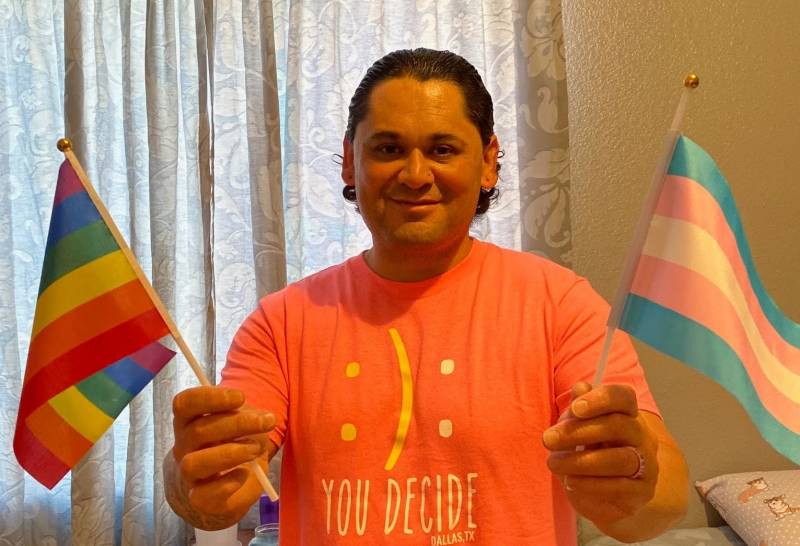For Avilez, the difficult adjustment is not just the result of the time she spent in prison and detention, but that she’s back in her aunt’s house — trying to live her life authentically in close quarters with some family members who haven’t seen her since she transitioned to female.
“My aunt still calls me m’ijo. It’s kind of hard for her, and I understand that. I’ll have to sit down and talk with her about that later,” Avilez said. “But, I want to be able to wear my makeup. I don’t have to be scared no more.”
Avilez lost an initial bid for asylum, but she has appealed. While she awaits her next immigration court hearing, she said she’s eager to get her life started again. She wants to get a cellphone, so that she can call the friends she made in detention.
She also wants to get her job back. Avilez said she used to work in the medical field as a service technician, helping people who use wheelchairs and providing assistance to the elderly across Monterey County.
“I’m happy I’m free. [Though] I don’t feel completely free because I’m wearing an ankle monitor … I can’t go out,” she said.
Since Avilez left ICE custody, she has not had access to hormone treatment. But attorney Hector Vega of the San Francisco Public Defender’s Office, who represents Avilez in her immigration case, said social workers in his office have found a clinic in Monterey County that can provide her the medication, free of charge.
In her first act of independence since being released from detention, Avilez bought a pink T-shirt with a single parentheses in the middle and colons dotting either side, creating the image of both a sad and happy face.
“Is it a happy face?” Avilez asked. “You decide if it’s happy or not.”

